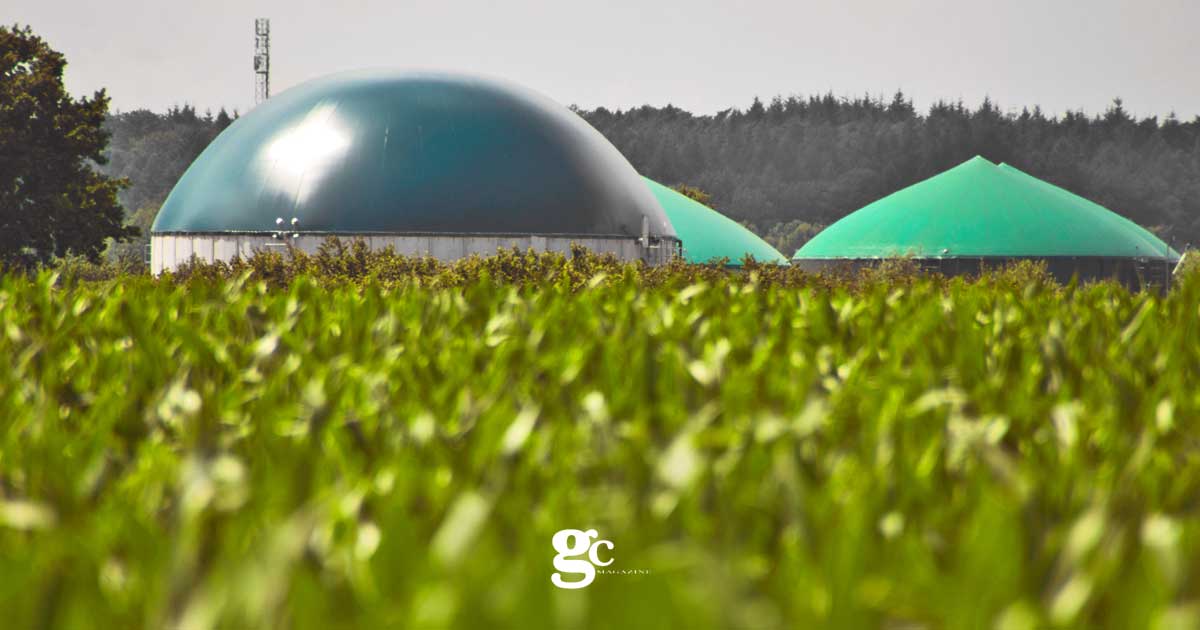6 March 2023

Partnership with ACEPER for 360-Degree Consulting
The biogas decree approved at the end of October 2022 will give a new boost to the production of green gas, promoting the development of new agricultural biogas plants and the conversion of existing ones.
Navigating the procedures to access incentives is not straightforward, so it’s advisable to rely on specialists with extensive experience in the sector and deep market knowledge. ACEPER has formed a partnership with IGW, a company specializing in the design, consulting, and construction of biogas and biomethane plants. Patrizia Monti, one of the founding partners of the company, discusses the reality of IGW in this interview.
Your name reflects your mission. Can you explain it to us?
IGW stands for Innovative Green World. Innovation and environmental respect are the principles guiding our team of professionals: 17 people, plus a series of specialized collaborators scattered across the territory to ensure effective interventions in all regions, including the islands.
Our team includes a range of expertise: agronomists, environmental engineers, energy engineers, civil engineers, and management engineers. The group was formed in 2012, and since then, we have experienced significant expansion and growth, becoming what we are today: a 360-degree consultant able to assist both private and public companies as the sole interlocutor in evaluating and optimizing environmental impact and supporting all phases of the implementation of renewable energy plants, including biogas and biomethane facilities.
With the new biomethane decree, 1.73 billion euros are at stake. Many companies will try to access incentives. What is the risk of doing it yourself or relying on a non-expert professional?
Biomethane must be produced while complying with the sustainability requirements set by Directive 2018/2001/EU RED II, which involve important preliminary assessments: feedstock plans, plant modifications, self-consumption, etc. Many factors must be evaluated preliminarily to ensure the success of the initiative. A feasibility study is therefore required to ensure compliance with these requirements. This is a crucial step: if sustainability is not met, biomethane cannot be produced or marketed.
The risk of not consulting a knowledgeable professional familiar with regulatory processes is the possibility of reaching the end and not receiving the incentive. Our role is to ensure that there are no obstacles to the successful outcome of the initiative, from analyzing urban and environmental constraints to the financial performance of the plant, preparing a business plan to highlight margins and associated risks; this way, the investor knows what to expect. Sustainability must be maintained throughout the life of the plant, and we continue to support clients after their initial sustainability certification, ensuring its maintenance. The regulations are new, and we are among the few qualified. We work on both new plants and the conversion of existing ones, covering all types of facilities, from landfills to agricultural.
What are the timelines for the authorization process?
On paper, between thirty and ninety days, but in reality, it takes much longer. The public administration often does not complete procedures within the timeframes set by current regulations. With the new decree, participation will occur through auctions, and you must be prepared with authorization to produce biomethane in compliance with sustainability requirements. Auctions will be held periodically. The first is scheduled for January 30, 2023, and will close on March 31, 2023. The next one will likely be after the summer.
What is new in the new regulation?
Certainly, the possibility of receiving a Comprehensive Tariff as an incentive, as well as the option to combine a grant for investment from the PNRR with the incentive tariff for biomethane.
Do you also handle the commercialization of by-products? How?
With specific expertise in the valorization of biomass from agro-industrial by-products, we select and supply substitute and complementary biomass to biogas plants, in line with and respecting European and national regulations within the framework of the circular economy. For this purpose, we have also obtained a specific supply chain certification.
We connect supply and demand by acting as a liaison between agro-industrial companies that produce waste and those with biogas plants that purchase and reuse it to generate energy. What was once a waste product becomes a resource and opportunity for both economic and environmental benefits.
Once the authorization is obtained, does your support for the client end?
No, our work continues with technical-administrative support, including providing clients with dedicated software to manage sustainability and deadlines related to authorization or regulations, as well as in case of inspections or audits. We have long-term clients with whom we have developed enduring collaborations, confirming a solid and trusting relationship.
Patrizia Monti – Founding Partner of IGW

Press review
For information



